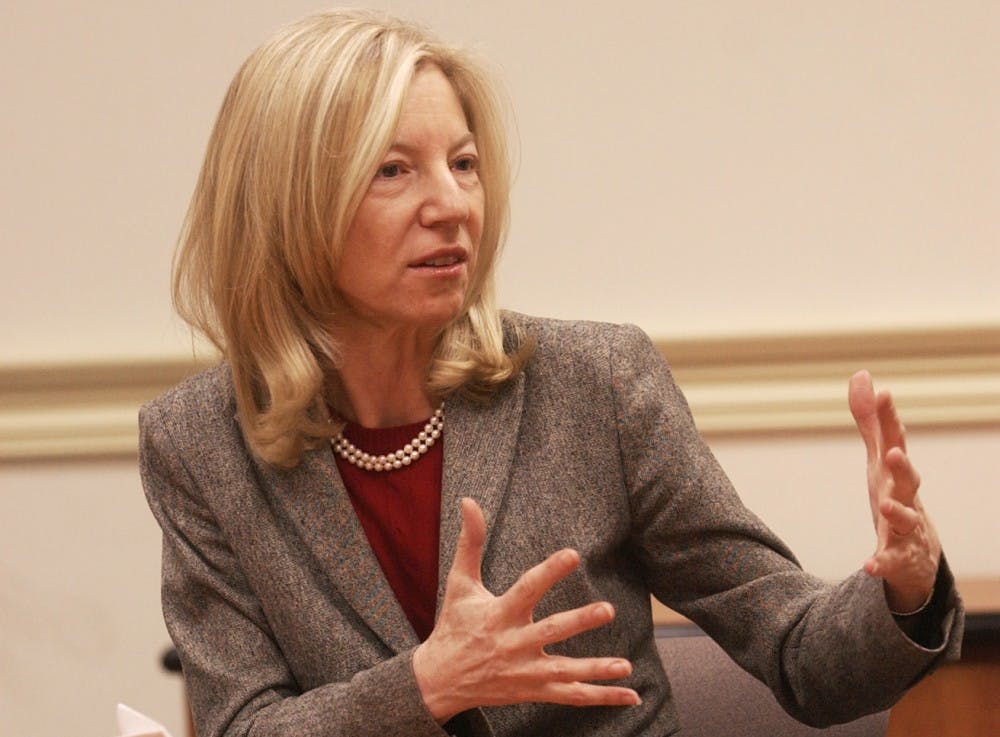
Editor’s Note: A previous version of this article omitted contextual information about Vanguard’s structure and investment strategy. The Daily Pennsylvanian regrets the omission.
As university endowments, including Penn’s own pool of assets, have increased in value, student activists have focused intently on the choices investment managers make with school money.
At Penn, that focus has mainly come from Fossil Free Penn’s push for the University to divest from fossil fuels. That movement, and its claim that endowments — typically with investments in hundreds, if not thousands, of pooled funds and in individual companies — should be held to higher ethical standards, invites a conversation about Gutmann’s own role as a director of Vanguard, one of the world’s largest asset management firms.
From the time she joined Vanguard’s board in 2006 through 2016, the latest period for which public filings are available, Gutmann has earned over $2 million in compensation from Vanguard, according to Daniel P. Wiener, an independent adviser to Vanguard investors. Wiener said Gutmann also owns shares in only 14 of the 198 funds she supervises, as of the latest public filing.
“She essentially has no skin in the game for 184 of the Vanguard funds she’s supposed to serve,” he wrote in an email.
Like many other large asset management firms, Vanguard has funds that invest in fossil fuel companies, firearms manufacturers, alcohol distilleries, and other companies which have prompted critics to raise ethical concerns.
Gutmann is a major shareholder in some funds, including the Vanguard 500 Index Fund, that track prominent stock indices like the Standard and Poor’s 500. This index fund holds stock in cigarette and tobacco conglomerate Philip Morris International, several oil companies, and hundreds of the world’s other largest firms, including Apple and Facebook.
Vanguard holds the second-most amount of shares in two American firearm manufacturing companies: American Outdoors Brands Company and Sturm, Ruger, and Co., according to NASDAQ’s website.
Within the finance industry, some asset managers have proposed a wider ethical conversation about divesting from companies involved in “vices” like smoking, drinking, and firearms. One firm, Domini Social Investments, does not even include firearms manufacturers in their mutual funds.
“We don’t need to finance violence in order to invest in our own retirement accounts,” Adam Kanzer, Domini’s managing director of corporate engagement, told The New York Times.
As of 2013, 13 Vanguard accounts held shares of Smith & Wesson, a subsidiary of American Outdoors Brands, and others held stock indirectly, according to the Times. Many other asset management firms and stock indices include firearms manufacturers.
Vanguard's huge retirement accounts and its role as the largest provider of mutual funds in the world means that many companies — including The Daily Pennsylvanian — invest in the asset management firm. (The Vanguard Group, along with TIAA Financial Services, is one of the two investment management firms from which the University has allowed its employees to choose retirement plans since 1984, a Penn spokesperson said.)
In an interview with Vanguard on Dec. 1, Gutmann said, “It's that same spirit of common sense (which is not so common!), prudent planning, and steady incremental improvement that has enabled both Penn and Vanguard to navigate the challenges and opportunities of today as well as prepare for a very bright and very long future.”
Gutmann joined Vanguard’s board two years after becoming Penn's President. Judith Rodin, her predecessor, served on the boards of American Airlines, Comcast, and CitiGroup.
The Daily Pennsylvanian is an independent, student-run newspaper. Please consider making a donation to support the coverage that shapes the University. Your generosity ensures a future of strong journalism at Penn.
Donate



